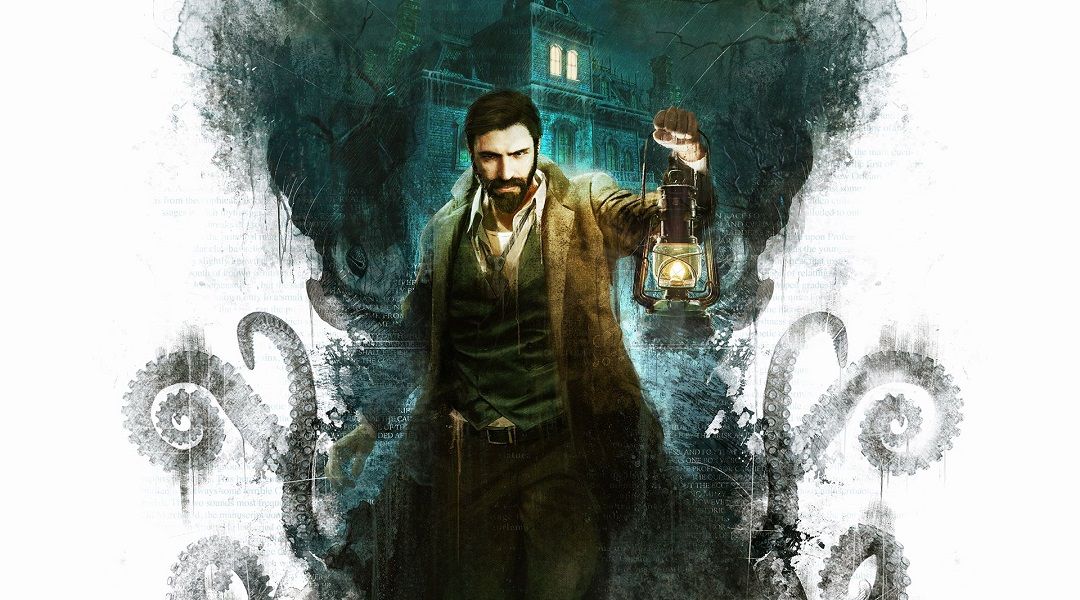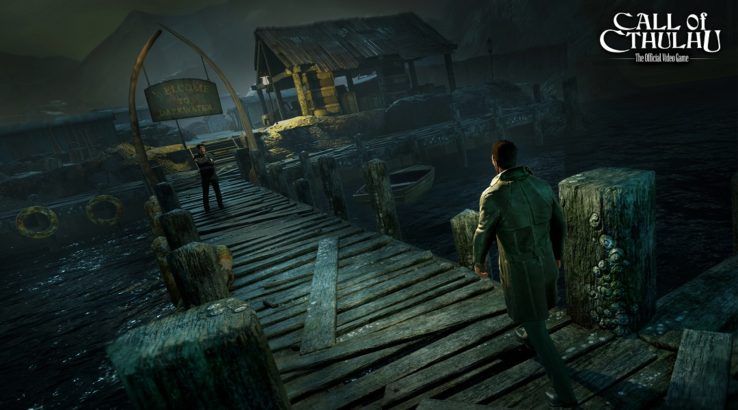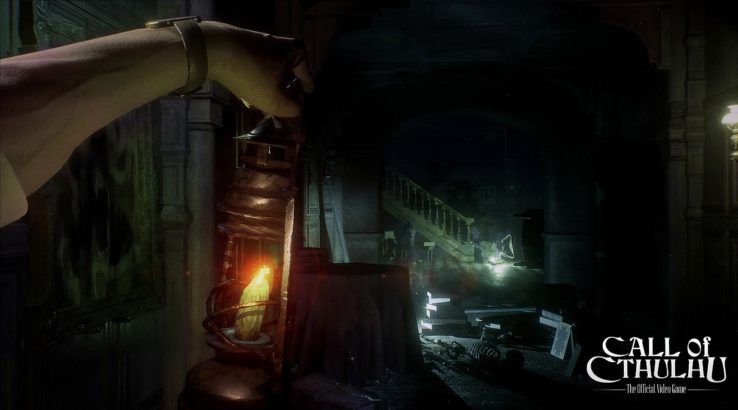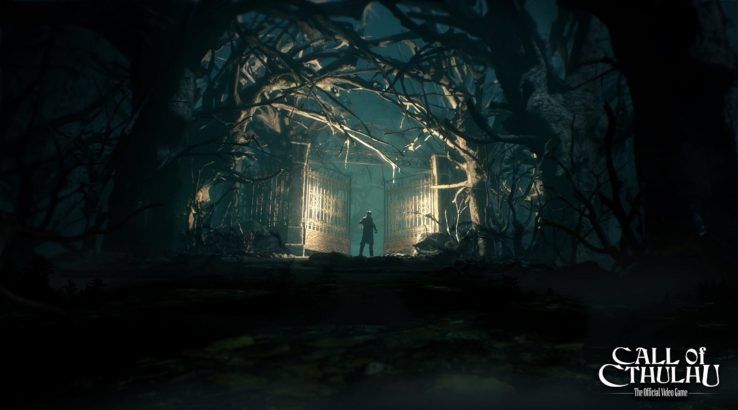Call of Cthulhu: The Official Video Game looked promising. Its impressive trailers and gameplay demos saw it become one of the most anticipated horror games of the year, especially with it releasing so close to Halloween. Unfortunately for anyone looking for a good scare, it doesn't live up to expectations, to say the least.
Call of Cthulhu is a confused game that doesn't quite know what it wants to be, and the result is a bunch of half-baked ideas that are never really fleshed out or developed in a significant way. At times, it's a detective game where players interview witnesses, collect clues, and analyze crime scenes. Other times it's a Deus Ex-style RPG where players are tasked with overcoming challenges. And then strangely it plays like a walking simulator. Some stealth sections are thrown in for good measure, but due to the game's short length, some of these mechanics are only experienced a handful of times, making them feel tacked-on and shallow.
The detective portions are the strongest part of Call of Cthulhu, as they shed more light on the story, which is one of the game's only redeeming qualities. It's fun to interact with the people of Darkwater, learning their backstories and discovering more about the island's mysterious past. The Lovecraftian backdrop certainly doesn't hurt, and the core mystery is interesting enough that some players may still be compelled to see the game through to the end despite the gameplay ranging from dull to downright awful.
Dull is a great way to describe Call of Cthulhu's RPG elements. A perfect example of one of the game's features being only partly developed, the RPG elements are virtually inconsequential after the initial stat-selection process. Players spend points on a few different categories for protagonist Edward Pierce, choosing to focus on things like Eloquence, which will help him get additional information in conversations, or Strength, which predictably helps him strong-arm his way through some situations. Edward can upgrade these skills by completing certain tasks in-game, but players likely won't have time to upgrade the skills to the point where they will actually be useful. There isn't really a point to a skill tree system like this when there isn't much the player can do to improve the skills they didn't spend points on in the very beginning.
Even with some of the skills almost fully upgraded, we still found ourselves failing attempts at persuading characters or picking locks. It seems like the only way these skills can be relied on is if they're fully upgraded, which will only happen if players load them with points at the beginning. So even though Call of Cthulhu offers multiple ways to complete objectives in the game, players are usually locked out of every option except one.
Having said that, the open areas where Edward is able to put his limited skills to the test are still more enjoyable than other parts of the game. When they're not in these open areas, players are often herded through hallways, with the game's surprisingly strict linearity making it come across as a cheap haunted house. And just like a real life haunted house attraction, almost nothing that jumps out can hurt the player, as Call of Cthulhu has surprisingly little in the way of actual threats.
Enemies are in the game, though they are few and far between, and encounters with them lack any kind of thrill or tension. Enemies usually appear during the game's frustrating stealth sections, which are that way not because they're difficult, but because they defy logic and hardly function. If players are seen by an enemy, they can usually just sprint away and escape them with ease, especially since none of the enemies seem capable of actually catching up to Edward. There are closets players can hide in, and we were able to climb into these in full view of enemies and still evade capture. There are no stakes with the stealth, and it just doesn't work in Call of Cthulhu, serving only to weigh the game down even further.
Despite its poor gameplay, Call of Cthulhu could've redeemed itself somewhat if it had anything to offer when it comes to its graphics or audio, but it fails there as well. Visually, the game looks more like an Xbox 360-era game than something that belongs on current-generation consoles, with poor animations and decidedly unimpressive character models. The voice acting is also substandard, with many of the performances sounding forced as the actors read off the cheesy dialogue. Even worse though is the musical score, something that is absolutely crucial to the atmosphere of a successful horror game. The music in Call of Cthulhu lacks impact and doesn't come close to establishing the creepy atmosphere better horror games are able to deliver.
The lack of a creepy atmosphere hurts Call of Cthulhu more than anything else. Some horror gaming fans are willing to put up with an otherwise lackluster gameplay experience if it means some genuine scares, but Call of Cthulhu simply doesn't deliver. It tries to creep players out with some grotesque imagery and monsters, but the monster designs are unimaginative, with one creature looking like a cheap knockoff of something from Cloverfield. The unenthusiastic audio design keeps it from even doing jump scares well, so not even cheap scares can be found here.
Call of Cthulhu wants to be scary. But instead of invoking a sense of fear in the player, Call of Cthulhu is almost relaxing to play, especially during the detective sequences, which is the exact opposite way a horror game should make players feel. Fans of the genre shouldn't bother seeking it out for that reason alone, but for many other reasons, it's not worth playing in general, horror fan or not.
Call of Cthulhu: The Official Video Game is out now for PC, PS4, and Xbox One. Game Rant reviewed the game on Xbox One.




